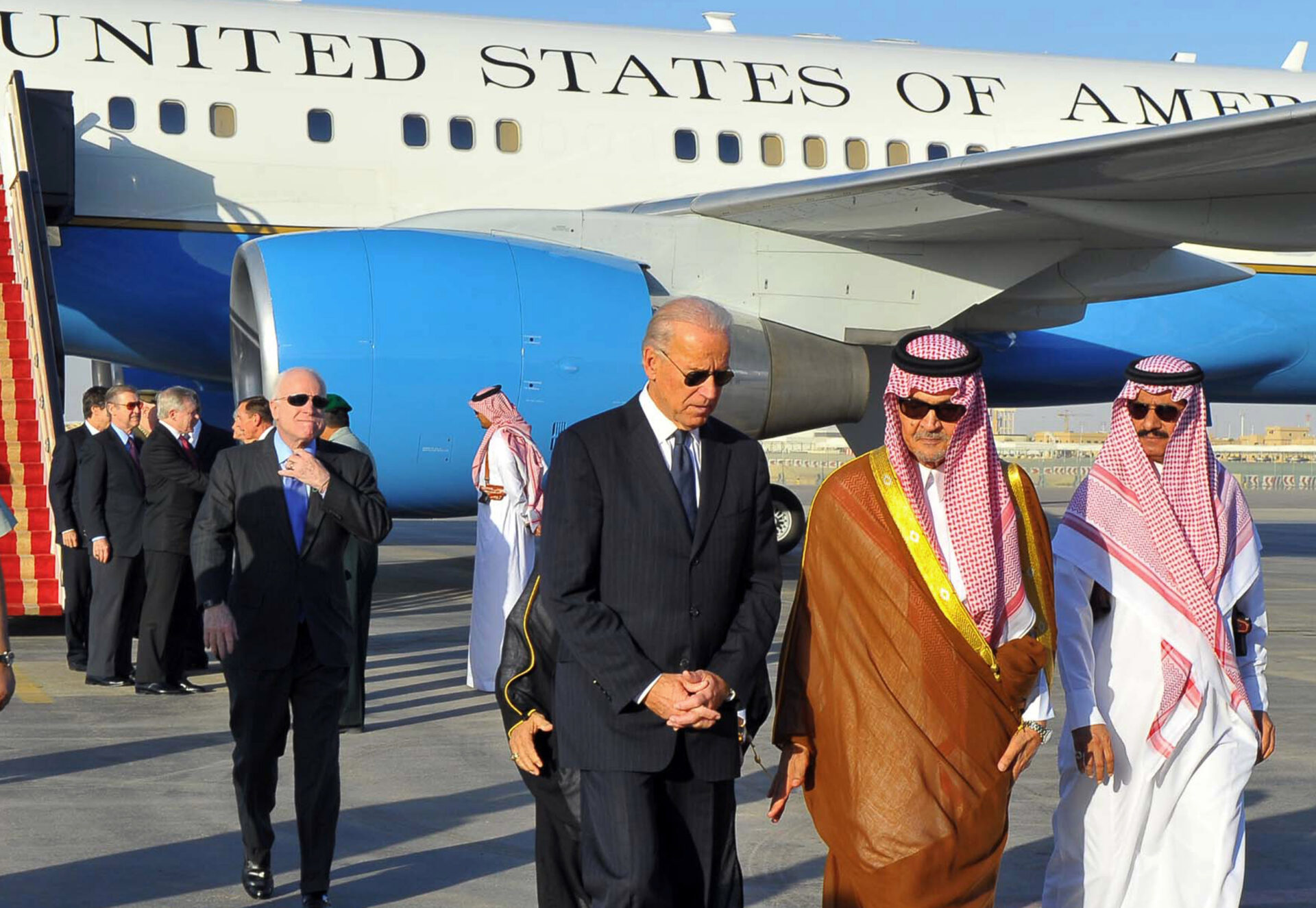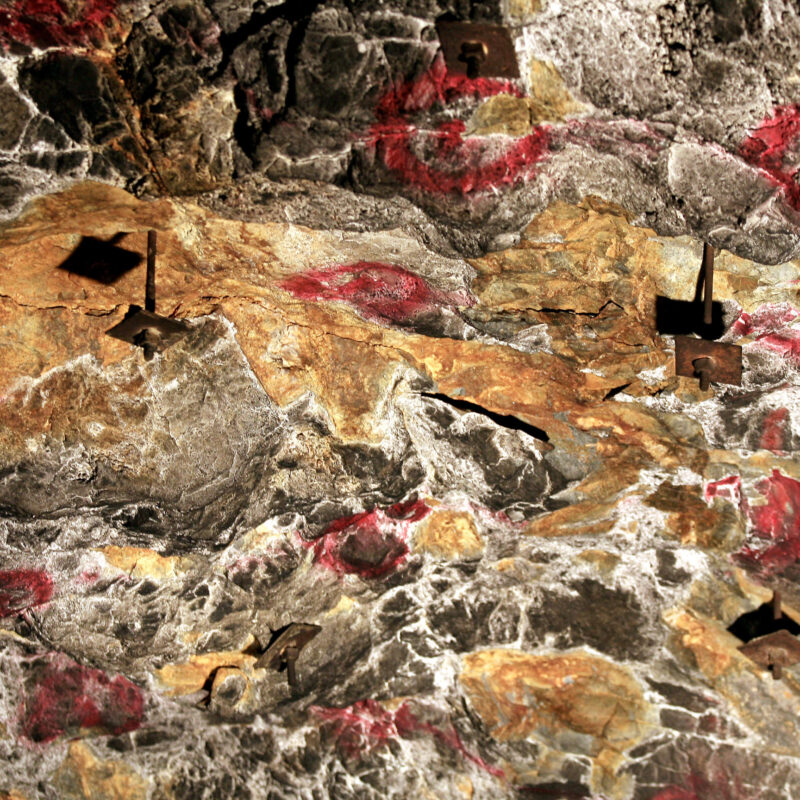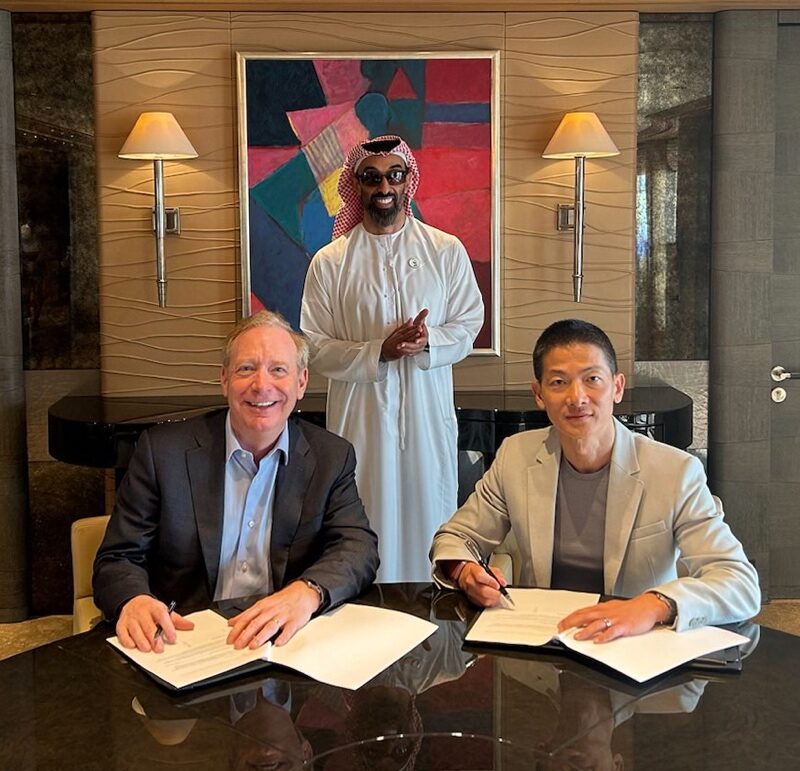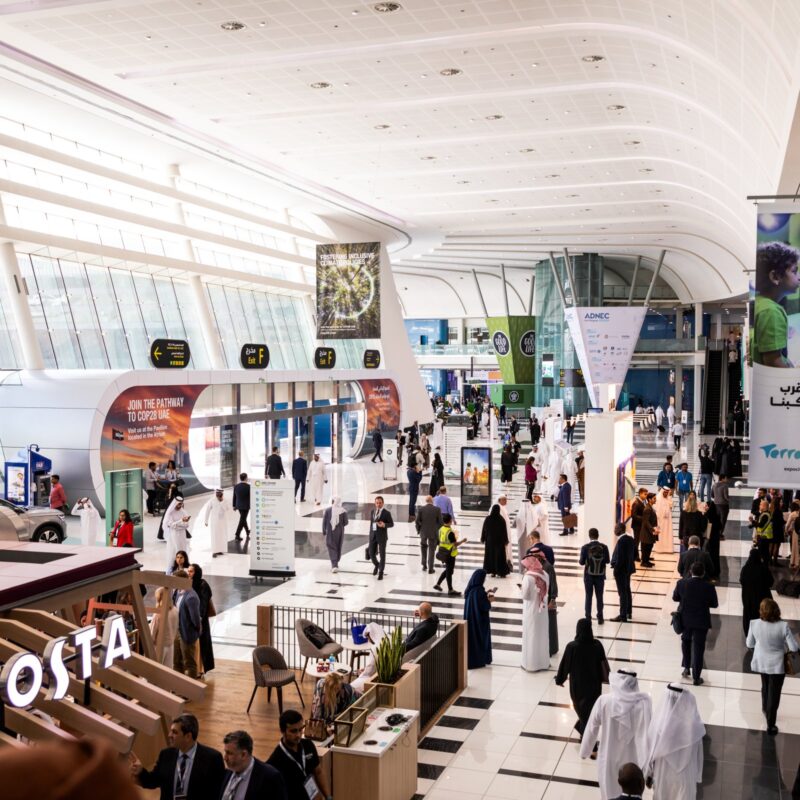
AFP via Getty Images
Biden trip kindles Israeli hopes for broadening Saudi business ties
While U.S. doesn't expect Saudi Arabia to join Abraham Accords at this point, the president pledges effort during this week's visit to `deepen and expand’ normalization
President Joe Biden’s visit to the Middle East this week is raising expectations that he will coax some gestures from Saudi Arabia that bring the kingdom closer to open business ties with Israel.
Though U.S. officials have indicated that an official extension of the Abraham Accords to include Riyadh won’t occur on this trip, Biden’s itinerary, which includes a direct flight from Tel Aviv to the Saudi port city of Jeddah, is too tantalizing for Israelis to treat casually.
“They see that there’s something brewing,” said Tally Zingher, managing director of Blue Laurel, a Middle East strategic advisory firm. With the Biden trip shining a spotlight on Saudi Arabia, Zingher told The Circuit, people are approaching her and saying, “We want to be in, we don’t want to miss this.”
Biden is scheduled to arrive on Wednesday at Israel’s Ben Gurion International Airport, where he will be greeted by newly installed Prime Minister Yair Lapid. The three-day visit will also include a brief trip to the West Bank for a meeting with Palestinian Authority President Mahmoud Abbas.
On Friday, Biden flies across the Red Sea to Jeddah, where the next day he will participate in the GCC+3 Summit, a meeting of the Gulf Cooperation Council, which includes Saudi Arabia, Qatar, Kuwait, Oman, Bahrain and the United Arab Emirates, together with Egypt, Jordan and Iraq. While the meeting will focus on Biden’s efforts to bring down oil prices, it will also be where he meets with Saudi Crown Prince Mohammed bin Salman. Biden pledged during his 2020 presidential campaign that he would make Saudi Arabia a “pariah” for the 2018 murder of Jamal Khashoggi, a Saudi dissident and columnist for the Washington Post. A CIA investigation concluded that the prince ordered the killing.
The president’s Mideast trip comes nearly two years after the United Arab Emirates and Kingdom of Bahrain signed the U.S.-brokered Accords with Israel. In May, the UAE and Israel signed a free-trade agreement that the two countries say could push bilateral commerce to $10 billion in the next five years. Abu Dhabi’s Mubadala Petroleum bought a stake in one of Israel’s offshore gas fields last year for $1 billion.
Overcoming Reservations
That may bolster the argument that normalizing ties could also be useful for Saudi Arabia, the Middle East’s biggest economy, analysts say, but probably not enough yet to overcome the reservations that the Saudi Royal Court retains in keeping relations with Israel unofficial and under the radar. Saudi leaders acknowledge their interest in developing closer ties with Israel but have said no formal agreement will be signed until a resolution to the Israeli-Palestinian conflict is reached.
“There clearly are moves that will happen,” said Ghanem Nuseibeh, a political risk consultant and co-founder of Cornerstone Global Associates, which has offices in London and Dubai. “The question is how much will be public and how much behind the scenes.”
Nuseibeh said Biden will expect reciprocal actions for his decision to meet Prince Mohammed, often referred to as MBS, who is the country’s de facto ruler even as his 86-year-old father, the ailing King Salman bin Abdulaziz, still holds the throne.
”The U.S. remains the most important country for Saudi Arabia and can exert great leverage,” Nuseibeh said.
Not a Rupture
In an opinion article for the Washington Post this week days before the trip, Biden wrote that his aim with Saudi Arabia from the start “was to reorient — but not rupture — relations with a country that’s been a strategic partner for 80 years.” He said the direct flight between the two countries will be a “small symbol of the budding relations and steps toward normalization between Israel and the Arab world, which my administration is working to deepen and expand.”
Lapid took note of Biden’s itinerary and said the president’s flight “will carry with it a message of peace and hope from us.” Speaking on Sunday at the weekly cabinet meeting in Jerusalem, Lapid said that “Israel reaches out to all the countries in the region and calls on them to build ties with us, to establish relations with us and to change history for the sake of our children.”
Though Saudi-Israeli connections are likely to remain low-key for at least the coming months after Biden’s visit, those involved say business relations between the two countries have changed dramatically since just a few years ago when contacts were disguised through second passports and shell companies.
“It used to be, OK, pretend to be American, pretend to be British, pretend to be this or that,” said Shmuel Bar, chief executive of IntuView, an Israeli company that has in the past acknowledged selling its sentiment-analysis software to Saudi customers. “That’s no longer the case. When you talk to them, it’s not, ‘let’s play make-believe.’”
Biden’s ambassador to Israel, Tom Nides, sought to temper expectations for the trip when he spoke to Haaretz reporter Allison Kaplan Sommer on a July 4 podcast.
“Would I love at some point in the future for the relationship between Saudi Arabia and Israel to become ‘normalized’? One hundred percent,” said Nides. “Will it happen on this visit? No, it won’t.”
Around the Edges
At both the government level and in business, Israeli-Saudi ties are getting closer in an incremental process that could be called “normalization around the edges,” said David Pollock, a fellow at The Washington Institute for Near East Policy and former State Department official.
In meetings arranged by the Pentagon and other U.S. agencies, Saudi and Israeli officials often appear together, Pollock points out. Even if no bilateral agreements are signed, issues on the agenda for Biden’s trip include Israeli planes overflying Saudi Arabia and Israel’s interest in free navigation through the Red Sea that could be affected by the transfer of two islands from Egyptian to Saudi sovereignty.
Pollock also points to a Wall Street Journal report about the Affinity Partners fund, founded by former President Donald Trump’s son-in-law Jared Kushner, that raised $2 billion from Saudi Arabia’s sovereign wealth fund with the understanding some of it would be invested in Israeli startups.
“The Saudis are as prepared for this as the Bahrainis and the Emiratis were before the Abraham Accords,” Pollock said. “But the Saudis want to get something first.”
Another reason the Saudis may not be quick in advancing ties with Israel is because of the chances that Trump may return to power following the 2024 elections, conscious that they generally are treated better when the U.S. president is a Republican, according to Riad al Khoury, an economic analyst and senior advisor for Jordan at the Global Challenges Forum.
They will be watching the midterm congressional elections later this year for indications of Biden’s political strength and see the prospects of his winning a second term in 2024 as unlikely, he said.
“If the Democrats get clobbered in November, the writing will be on the wall,” said al Khoury.
Tel Aviv to Riyadh
Among the Saudi projects that are the most ripe for Israeli involvement is Neom, the $500 billion megacity being built on the kingdom’s Red Sea coast, said Jon Medved, founder and chief executive of OurCrowd, a Jerusalem-based equity investment platform active in the Gulf.
Having set up an Emirati unit that is scouting for new prospects across the Arab world, Medved said Saudi Arabia is likely to become an anchor in a developing Middle East market for new technology companies.
“What’s going to happen now is that people are going to come to the region and park themselves in the region,” Medved said. “Once a guy is swept to Tel Aviv to go check out his investments in startups, he’s going to hop over to Dubai and Abu Dhabi and Riyadh.”


